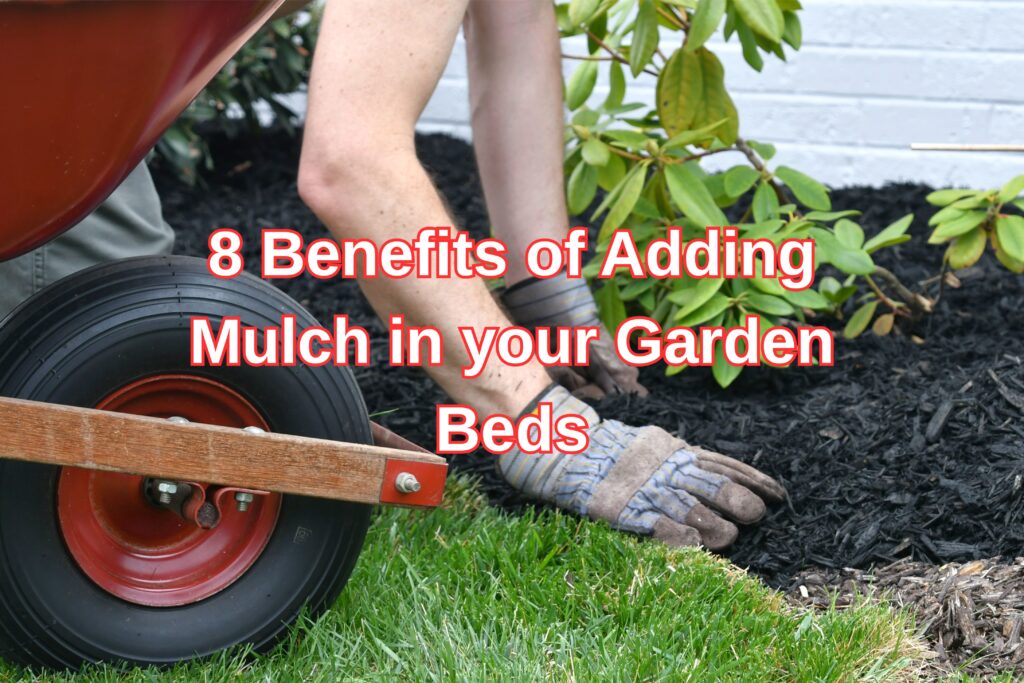Table of Contents
A thriving garden isn’t just about choosing the right plants—it’s also about caring for the soil they grow in. One of the most effective yet often overlooked practices for nurturing healthy plants and improving soil health is mulching. Mulch is a layer of material—either organic like bark, straw, and compost, or inorganic like rubber and gravel—spread over the soil surface. While it may seem like a minor addition, the impact it has on garden health, productivity, and maintenance is profound. Choosing the right type of mulch depends on your garden’s specific needs—whether you prioritize soil enrichment, long-lasting coverage, or visual appeal. Not sure which mulch is right for you? Check out our detailed comparison in the blog post: Organic vs Inorganic Mulch: What’s the Difference and Why it Matters to make an informed and confident decision for your garden.
Mulch serves multiple purposes beyond making your garden look neat and well-kept. It plays a critical role in moisture conservation, weed control, soil improvement, erosion prevention, and temperature moderation. Whether you’re managing flower beds, vegetable patches, or ornamental landscapes, mulch is an essential tool that supports sustainable gardening practices and long-term plant health.
Let’s explore in detail the eight major benefits of adding mulch to your garden beds—and why it should be a cornerstone of your garden care routine. Choosing the right mulch can make a big difference in both weed control and the overall health of your landscape. To learn more, read our blog 13 Types of Mulch: How to Choose the Best Mulch for Your Landscape.
1. Moisture Retention: Keeping Your Soil Hydrated
Water is essential for plant health, but evaporation and inefficient watering practices can waste a lot of it—especially during the hot summer months. Mulch acts like a sponge and a shield: it absorbs rainfall or irrigation and slows evaporation, keeping the soil beneath it moist for longer.
By covering the exposed soil, mulch protects water from being lost to wind and sun. This not only keeps your plants healthier but also reduces your water bills and conserves a vital resource. In regions prone to drought, mulching can be a game-changer for maintaining garden vitality with limited water availability.
Pro Tip: Use shredded bark or straw around vegetables and compost mulch in flower beds to maximize moisture retention.
2. Weed Suppression: Say Goodbye to Unwanted Plants
Weeds are not just unsightly—they compete with your plants for water, nutrients, and sunlight. A well-spread layer of mulch acts as a natural weed barrier by blocking sunlight, which inhibits weed seed germination.
Organic mulch, applied 2–4 inches deep, makes it physically difficult for weeds to break through. Even if some do manage to sprout, they’re usually much easier to pull from the soft, mulched surface. This means less time spent weeding and more time enjoying your garden.
Bonus: Because mulch suppresses weeds without chemicals, it’s a safer, more environmentally friendly way to manage garden maintenance.
3. Soil Temperature Regulation: Comfort for Roots Year-Round
Plant roots are sensitive to extreme temperatures. In the heat of summer, exposed soil can become excessively warm, stressing plant roots and slowing growth. In winter, cold snaps can freeze unprotected roots, potentially killing sensitive perennials or young plants.
Mulch acts as insulation, keeping the soil cooler in summer and warmer in winter. This buffer helps maintain more consistent soil temperatures, which promotes healthy root development and better plant performance.
Tip: Wood chips and shredded leaves are particularly good insulators for perennials and shrubs.
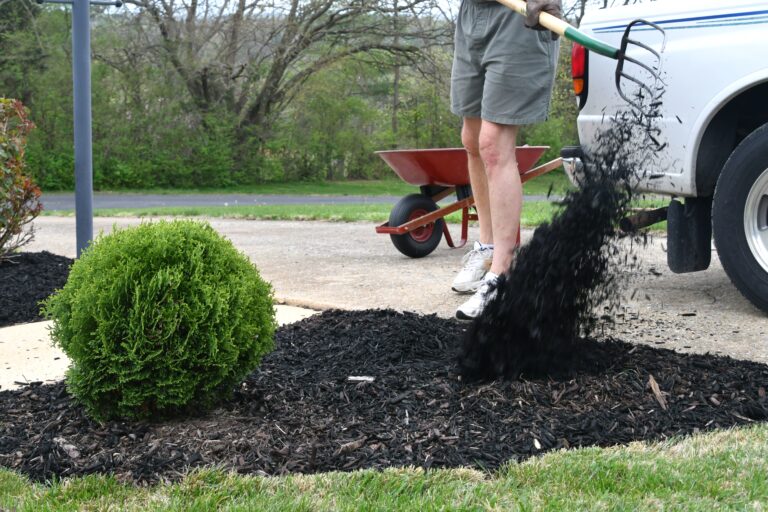
4. Soil Enrichment: Feeding the Earth Naturally
When organic mulches like bark, leaves, grass clippings, or compost decompose, they break down into nutrient-rich humus. This organic matter improves soil fertility and texture over time, enhancing its ability to hold water and nutrients.
Decomposition also supports the growth of beneficial microorganisms, earthworms, and fungi that play essential roles in soil health and nutrient cycling. In other words, mulch doesn’t just sit on top of the soil—it actively contributes to making it more alive and fertile.
Result: Over time, you may find that you need to use less fertilizer, and your soil becomes more resilient and productive.
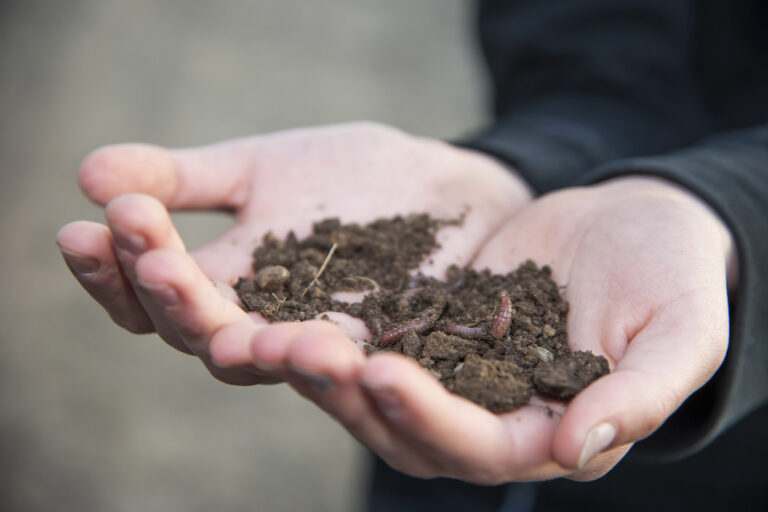
5. Erosion Control: Protecting Topsoil from the Elements
Rain and wind can strip your garden of its most valuable layer—topsoil, which contains the bulk of your soil’s organic matter and nutrients. Mulch serves as a protective cover, absorbing the impact of raindrops and reducing the force of wind that can displace soil particles.
For sloped gardens or raised beds, mulch can prevent runoff and soil compaction, helping to maintain proper soil structure and root function. Without it, heavy rains could quickly wash away months of effort and essential nutrients.
Use Case: On slopes, combine mulch with groundcover plants for maximum erosion resistance.
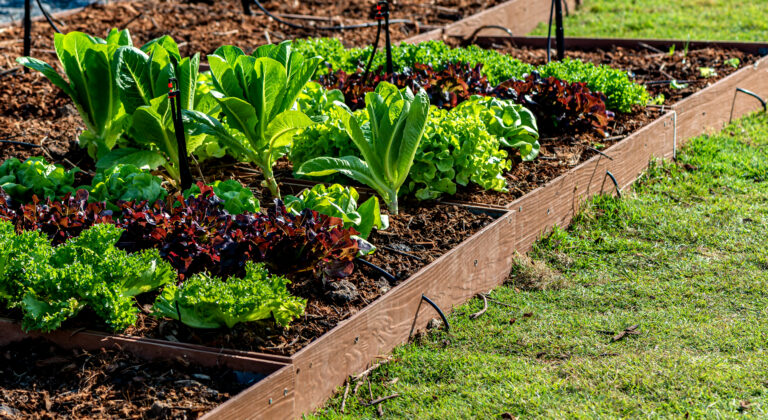
6. Aesthetic Enhancement: A Neat, Finished Look
Mulch isn’t just functional—it’s also visually appealing. It adds a polished, uniform appearance to garden beds, making the entire landscape look professionally maintained. Whether you prefer natural browns, rich red tones, or black mulch, there are plenty of options to complement your garden design.
In addition to enhancing curb appeal, mulch creates a visual contrast that highlights flowers and foliage, drawing attention to your plants. This can transform an ordinary garden into a standout focal point.
Design Tip: Use dark mulch to make bright flowers pop or lighter mulch for a clean, airy look.
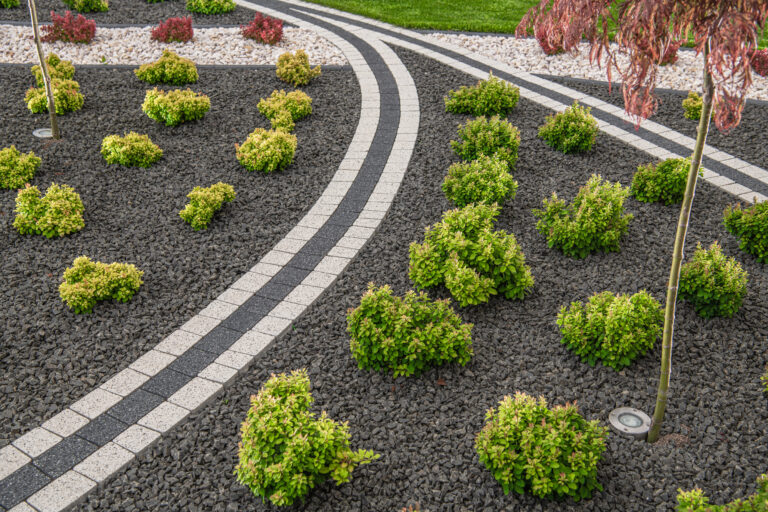
7. Pest Control: A Natural Deterrent for Garden Invaders
Certain types of mulch can actually repel pests. For example, cedar and cypress mulches contain natural oils and compounds that deter insects such as ants, termites, and cockroaches. Some gardeners also report fewer problems with slugs and snails when using dry, coarse mulch materials.
Moreover, mulch provides a habitat for beneficial insects like predatory beetles and spiders, which help control harmful pests naturally. It’s a simple way to encourage a healthy garden ecosystem without relying on synthetic chemicals.
Note: Avoid piling mulch against plant stems or tree trunks, which can attract moisture-loving pests or cause rot.
8. Root Protection and Plant Stability
Roots are the foundation of plant health, and mulch provides them with both physical and environmental protection. It softens the impact of foot traffic, rain, and garden tools that might otherwise compact the soil or damage delicate roots.
Mulch also helps reduce surface crusting, improving airflow and water absorption in the root zone. By providing a more stable environment, mulch supports stronger root systems and better overall plant growth.
Pro Tip: Around trees and shrubs, maintain a mulch-free “donut hole” around the trunk to prevent disease and rot.
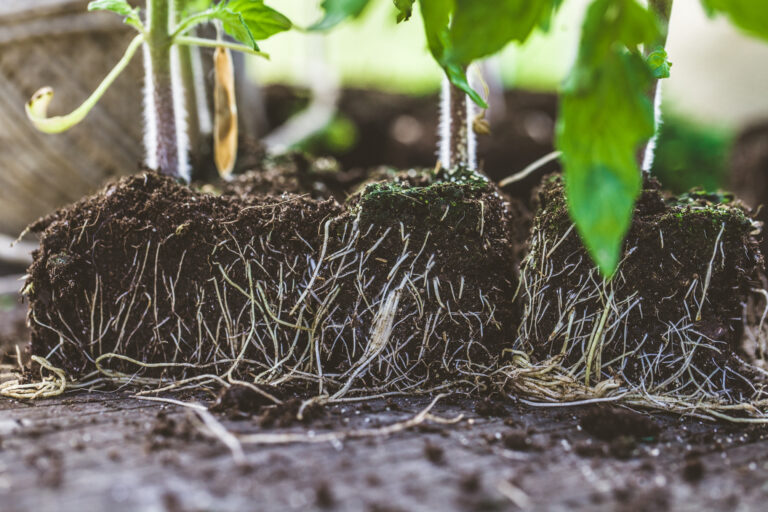
Mulching in Different Seasons
Mulching isn’t just a springtime task. In fact, timing your mulching based on the season can optimize its benefits:
Spring mulching helps suppress newly germinating weeds and locks in moisture for the growing season.
Summer mulching keeps roots cool and reduces water evaporation during heat waves.
Fall mulching insulates plants for winter, particularly important for perennials and bulbs.
Winter mulching, especially in colder climates, can prevent soil heaving and protect dormant plants from freeze-thaw cycles.
Mulch year-round for a truly resilient and self-sustaining garden ecosystem.
Conclusion
Adding mulch to your garden beds is more than just a finishing touch—it’s a fundamental step toward healthier, more resilient, and lower-maintenance gardens. From retaining precious moisture and reducing weed growth to enriching soil and enhancing visual appeal, mulch offers benefits that no gardener should overlook. Mulch offers both beauty and functionality—but there’s even more you can do with it. Read our post on 9 Innovative Ways to Use Mulch on Your Property to discover unique applications across your entire landscape.
Whether you’re aiming for a lush landscape, productive vegetable garden, or vibrant flower bed, mulch can help you achieve those goals while saving time, water, and effort. Choose the right type of mulch for your needs and enjoy the transformation it brings to your outdoor space. For more detailed information and tailored advice, visit our page on mulching. For support on your next mulch project, please feel free to reach out through our contact form, and our team will be happy to help.



